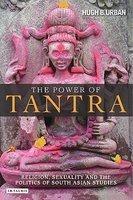
Book Summary
In the West, the varied body of texts and traditions known as Tantra for more than two centuries has had the capacity to scandalize and shock. For European colonizers, Orientalist scholars and Christian missionaries of the Victorian era, Tantra was generally seen as the most degenerate and depraved example of the worst tendencies of the so-called 'Indian mind': a pathological mixture of sensuality and religion that prompted the decline of modern Hinduism. Yet for most contemporary New Age and popular writers, Tantra is celebrated as a much-needed affirmation of physical pleasure and sex: indeed as a 'cult of ecstasy' that serves to counter the perceived hypocritical prudery of many Westerners. However, in recent years, Tantra has become the focus of a still larger (and fraught) cultural and political debate. In the eyes of many Hindus, much of the western literature on Tantra represents a form of cultural imperialism neo-colonialism, which continues to portray India as an exotic, erotic, hyper-sexualized Orient - as the dark, weaker, feminized opposite, in fact, to the rational, progressive, masculine West. Which, then, is the 'real' Tantra? Is the Tantra that by turns arouses and titillates, the Tantra commodified for Westerners as 'the Other'? Or is it the ancient expression of a misunderstood and venerable indigenous mysticism? Focusing on one of the oldest and most important Tantric traditions, based in Assam, northeast India, Hugh B Urban shows that Tantra is less about optimal sexual pleasure - or 'nookie nirvan' - than about power: and specifically about harnessing the divine energy that flows alike through the cosmos, the human body and political society. Though largely neglected in modern scholarship, Assam has long been considered one of the most powerful seats of Tantric worship, and the home of the great goddess of 'desire' herself: Kamakhya. In a vital contribution to the field, which offers a major new interpretation of the subject, the author suggests that the 'real' meaning of Tantra may lie in helping us rethink not just the history of Indian religions, but also our own modern obsessions with power, sex and the invidious legacies of colonial imperialism. This Tantra is neither exclusively Western nor Indian, but a mutual construct of both the Asian and Western imaginations, and rooted in social context, political conflict and historical change. About the Author Hugh B Urban is Professor of Comparative Studies at Ohio State University. One of the leading western scholars of Tantric religion, Professor Urban is the author of several books which include Magia Sexualis: Sex, Magic and Liberation in Modern Western Esotericism (2006), Tantra: Sex, Secrecy, Politics and Power in the Study of Religion (2003) and Songs of Ecstasy: Tantric and Devotional Songs from Bengal (2001). Table of Contents Introduction: Tantra and the Politics of South Asian Studies Matrix of Power: The Sakta Pithas and the Sacred Landscape of Tantra Blood for the Goddess: Animal Sacrifice and Divine Menstruation Goddess of Power: Tantra, Kingship, and Sacrifice in South Asian History The Sacrifice of Desire: Sexual Rites and the Secret Sacrifice What About the Women? Gender Politics and the Interpretation of Women in Tantra The Power of God in A Dark Valley: Reform, Colonialism, and the Decline of Tantra in South Asia The Power of Goddess in a Postcolonial Age: Transformations of Tantra in the 20th and 21st Centuries Conclusions: Tantra and the End of Imperialism: Beyond "Deep Orientalism" and "Third-Worldism".
Book Details
| Book Name | The Power Of Tantra : Religion, Sexuality And The Politics Of South Asian Studies |
| Author | Hugh B. Urban |
| Publisher | I. B. Tauris (2011) |
| ISBN | 9781845118747 |
| Pages | 264 |
| Language | English |
| Price | 476 |
